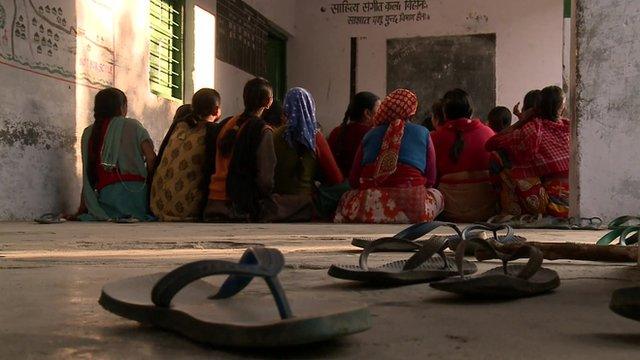100 Women 2015: The Syrian Malala and India's 'unwanted' girls
- Published
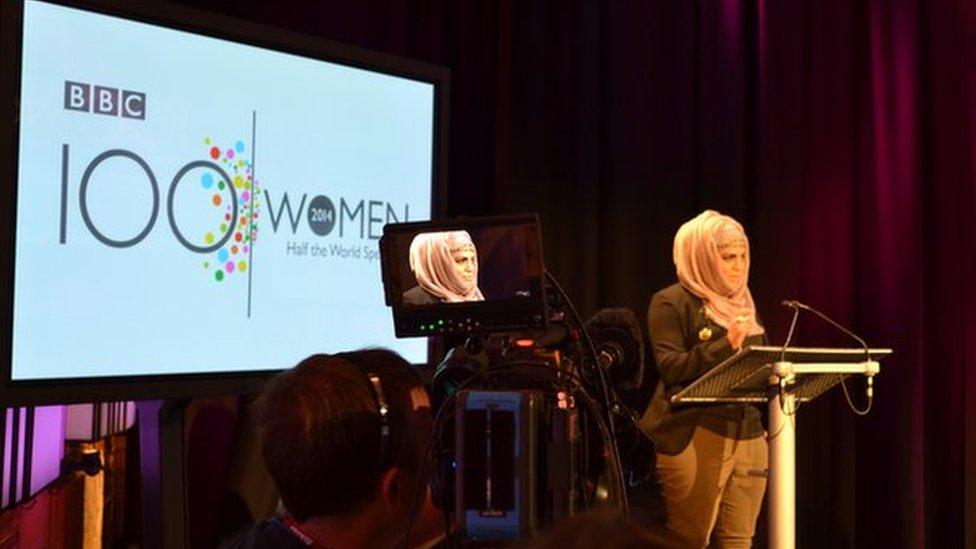
Young entrepreneur Shazia Saleem speaking at last year's debate at BBC headquarters in London
The BBC's 100 Women season is back with powerful and moving stories from across the world.
Women are being attacked for their looks , externaland menstrual cycles by high-profile American politicians, hundreds of girls are being held as sex slaves by Islamic State militants and female genital mutilation is never far from the headlines.
But despite the dangers and challenges facing women, many feel this year is a better time than ever to be a woman, with many new opportunities available.
Our series focuses on women who are changing the world and blazing a trail for others to do the same.
We will name 100 of the most influential women in 2015 and celebrate their work through a day of live debates on 1 December which will take place at 100 locations around the world.
One of the issues up for discussion is whether the media is failing women in its news coverage.
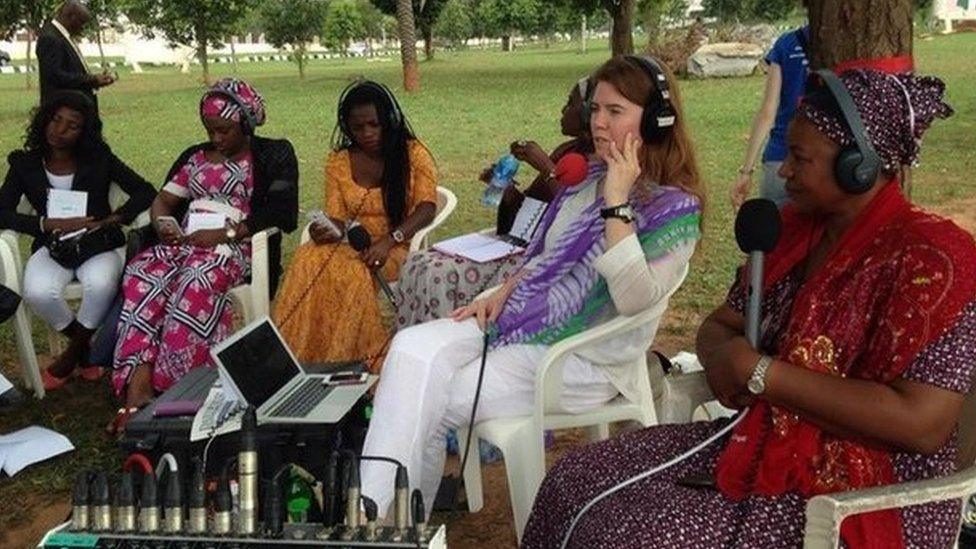
This year's event will be broadcast from 100 locations around the world
In the run up to this debate, there will be two weeks of broadcast and online coverage on a range of topics from across the world. We meet the Indian girls who are given the name "Nakusha" or 'unwanted' by their parents and the nuns in Latin America who volunteer in some of the most dangerous prisons in the world.
We will also hear from Palestine's first female governor, examine what is is like to be the daughter of a dictator and follow the work of a teenager known as the Syrian 'Malala'. Sixteen-year-old Muzzon al-Mellehan is encouraging girls to study in refugee camps despite the difficulties.
Thirty of the BBC's 100 Women this year are entrepreneurs aged under 30. The list also includes nurses working on the frontline of war zones, along with leaders in science, politics, education and the arts.
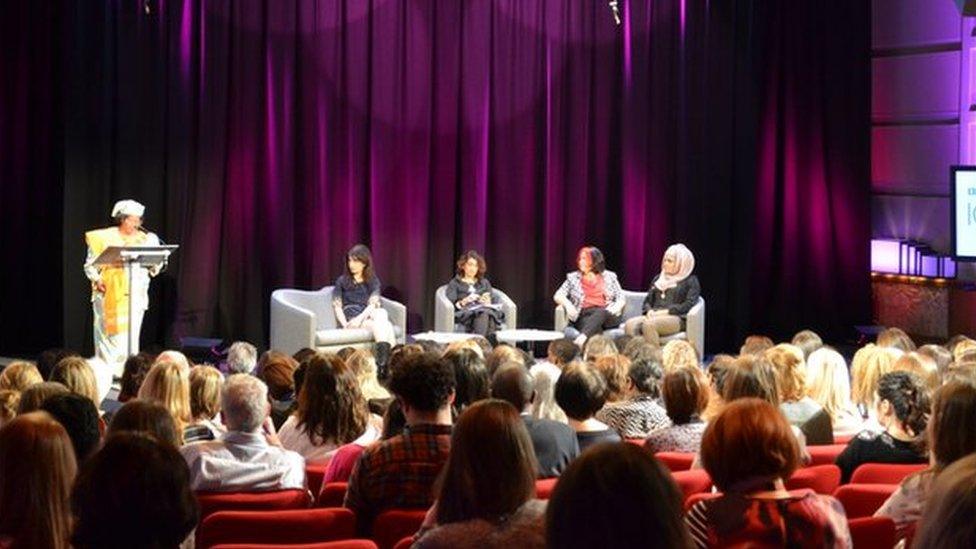
Last year's debate featured Joyce Banda, Malawi's first female president
The BBC News 100 Women season runs online, on BBC World News TV, on BBC World Service as well as on our 28 global languages services from 18 November to 2 December.
It is a chance for women to be represented, involved and inspired - and we want you to have your say.
Join the conversation on Facebook, Twitter and Instagram, using the hashtag #100Women, external.
- Published28 October 2014
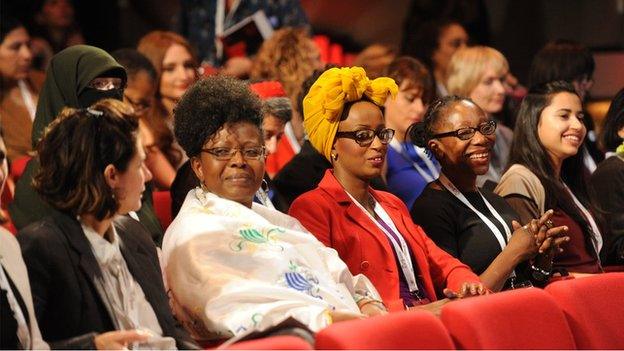
- Published27 October 2014
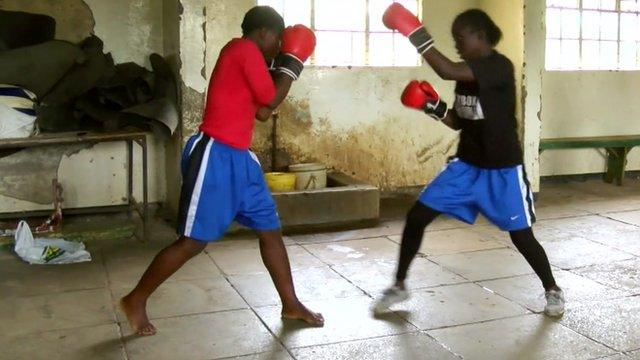
- Published27 October 2014
